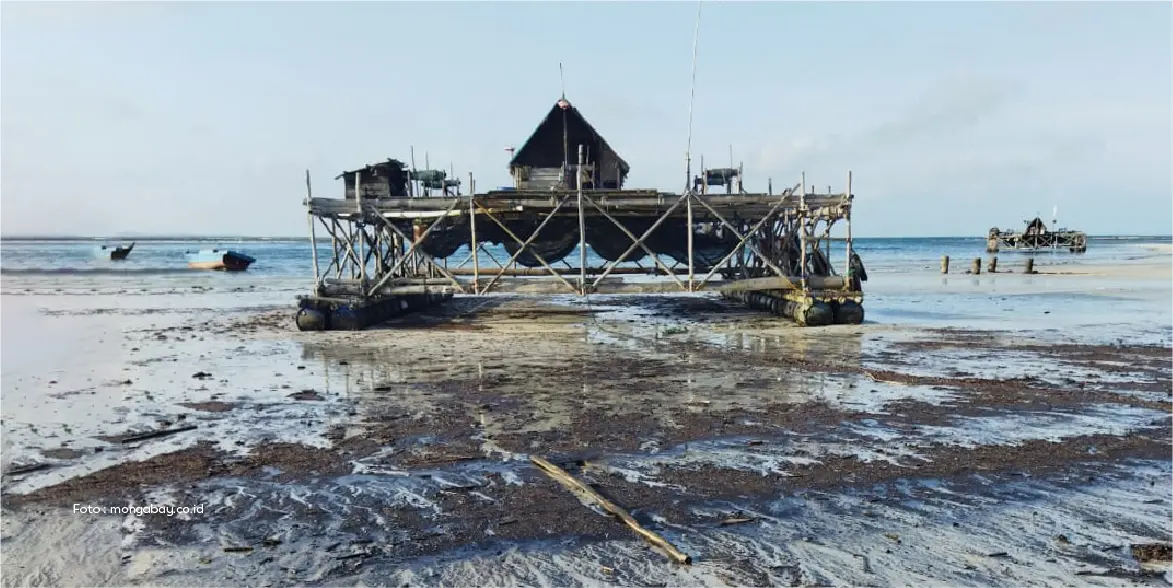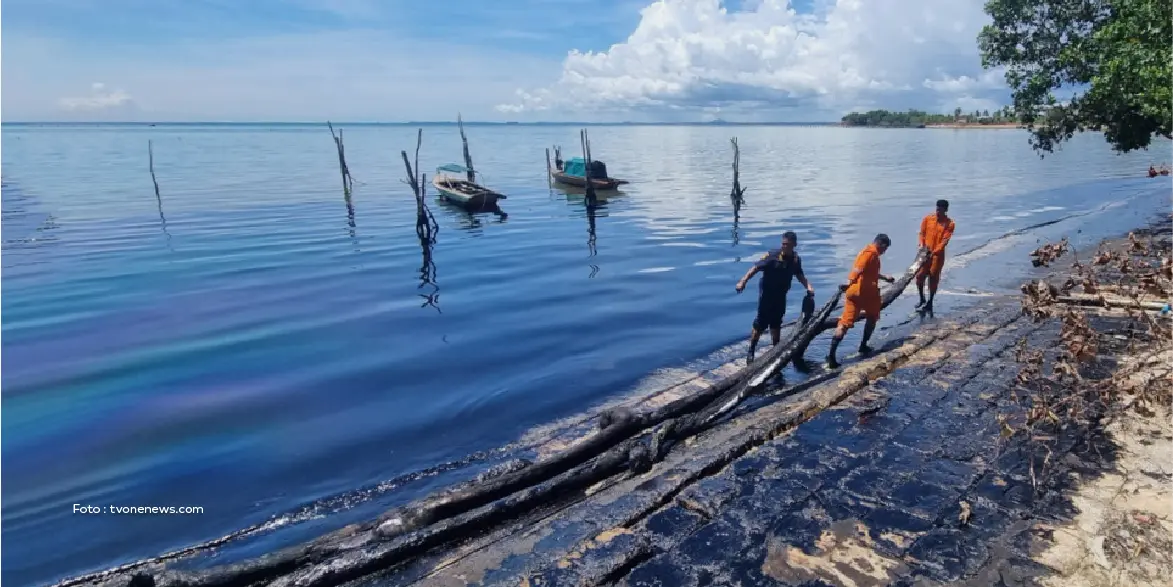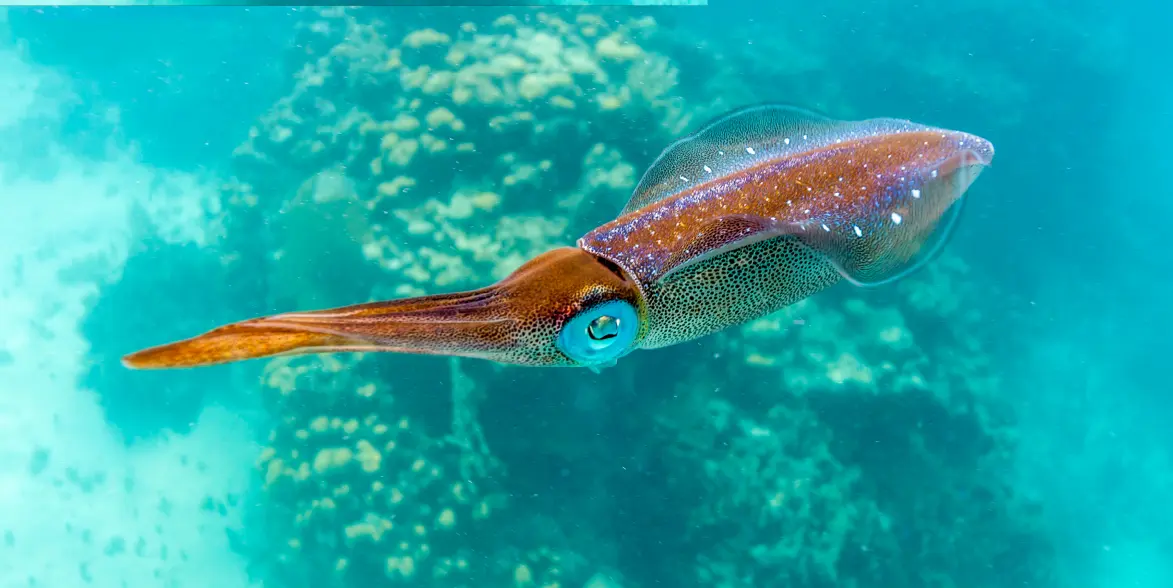Fishermen engaged in aquaculture and fishing activities around Bintan Island are once again facing a bitter pill to swallow, as almost every part of the coastal area is bound to be contaminated by uncontrolled black oil. Several sources reveal that the presence of black oil polluting the coastline and coastal areas has been recurring for decades.
“Yes, we just have to accept it every year,” said Kurnia, the Chairman of Neighborhood Association (RT) 02 Neighborhood Unit (RW) 01 in Teluk Bakau Village, Gunung Kijang District, Bintan, Riau Islands. He expressed that they are powerless to address the issue of oil pollution in their area. Instead of reporting the incidents to the relevant authorities, he and the residents prefer to work together to clean up the oil waste because the presence of black waste has become a common occurrence. “Even if we clean it up, the waste will come back when the tide rises,” Kurnia explained.
In addition to disrupting aquaculture and fishing activities, it also has an impact on the tourism sector

Apart from disrupting the activities of the local community, whose primary livelihoods are in aquaculture and fishing, the tourism sector also experiences significant losses every time this oil waste arrives. This includes popular destinations like White Sand, Gunawan Beach, Agro Beach, and Bamboo Beach, all located in Teluk Bakau Village. Bamboo Beach, in particular, has been known for offering clean beaches and delicious seafood for tourists. However, with the arrival of this waste, the management is forced to close their area. It’s worth noting that the seafood dishes served here are not purchased from external seafood suppliers but are the direct catch and cultivation of local fishermen.
The substantial presence of this oil waste undoubtedly disrupts the primary activities of coastal communities involved in aquaculture, as their fish farms also become contaminated. Additionally, the fishermen who go out to sea find their fishing gear automatically affected by the oil waste. This recurring waste not only disrupts the fishermen’s catches but also their livelihoods. Kurnia expressed hope that a solution can be found soon for the oil waste problem, so it no longer affects the livelihoods of the fishermen.
No Certainty About the Cause of the Oil Waste
The contaminated seawater not only pollutes the coastal areas but also generates air pollution, as the oil residue adhering to fish cages emits an unpleasant odor. To date, no one has successfully identified the source of the oil waste that disrupts the fisheries industry on Bintan Island. The operators of Bamboo Beach even revealed that this time the waste is far worse than in 2022.
The operators of tourist areas on Bintan Island have already brought this issue to the attention of PSDKP Bintan, the Department of Marine Affairs and Fisheries of the Riau Islands Province, the Harbor Master’s Office, and even the local military unit (Babinsa), with the hope that this problem, which has a massive impact on the people of Bintan, can be resolved promptly. The presence of oil waste presents a challenge to the government, which is currently focused on implementing various programs and policies to ensure the quality and sustainability of marine resources.
Aruna hopes that this longstanding and worsening issue can be addressed promptly. Efforts from the government and support from various stakeholders are crucial in identifying the source of the waste and preventing its recurrence. Meanwhile, Aruna Hub, together with the community and local heroes, continues to encourage fishermen to use environmentally friendly engines when at sea to prevent oil leaks from engines that can harm the environment and disrupt the natural balance.











Leave a reply
No comments found.